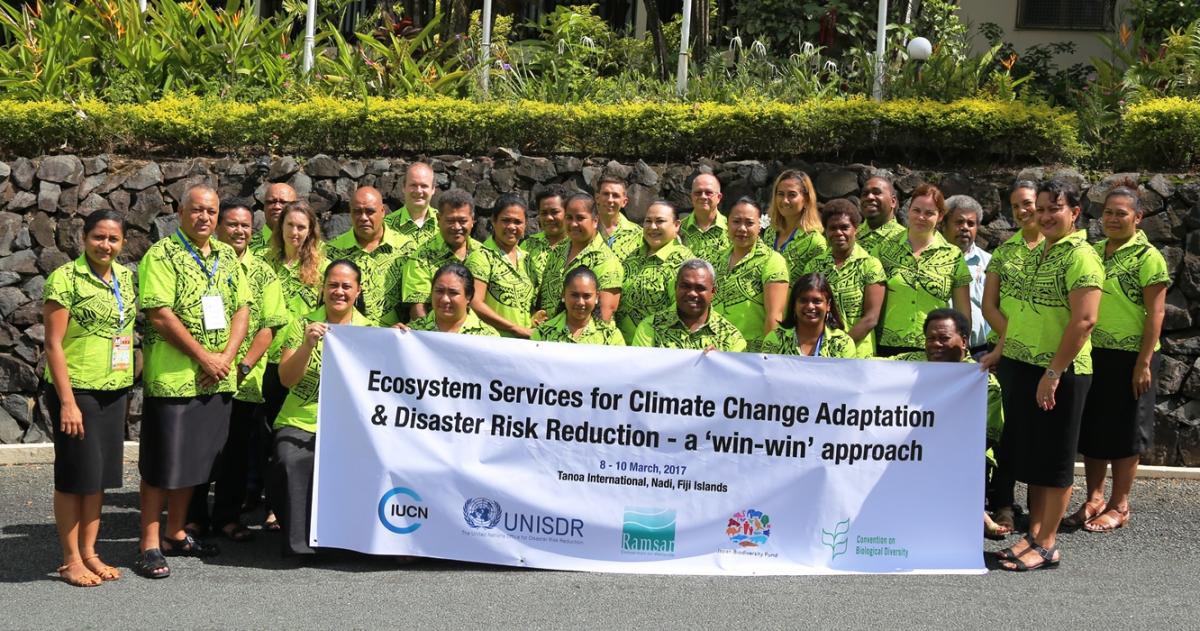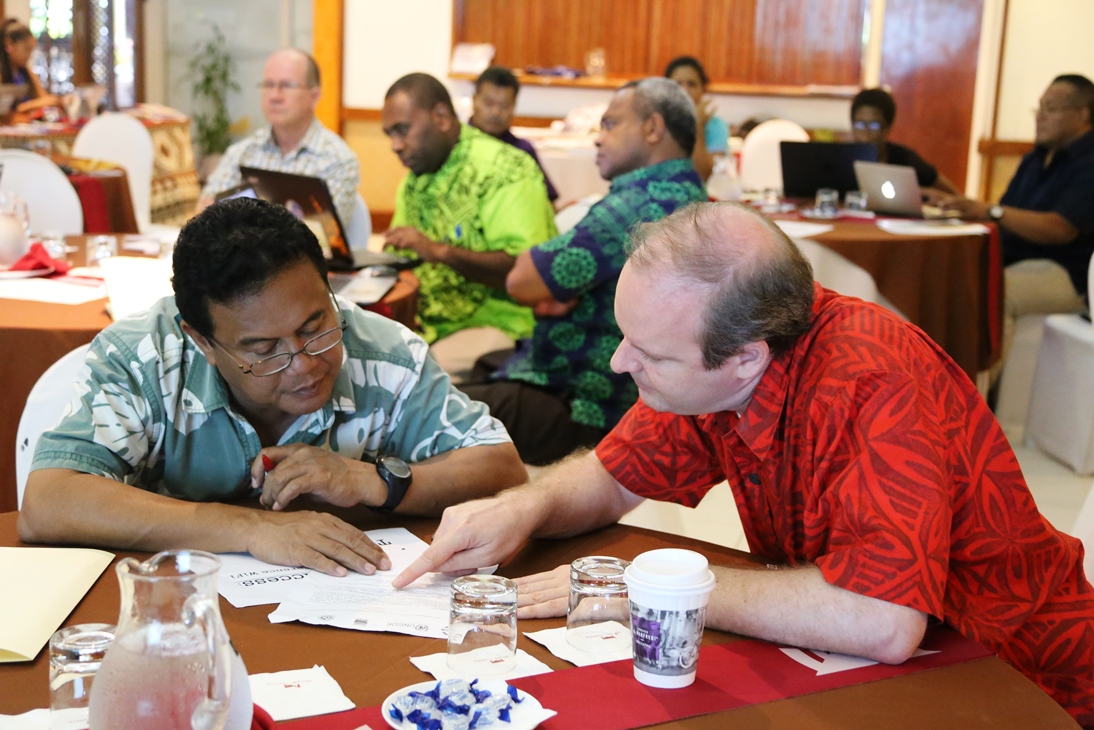Ecosystem services for climate change adaptation and disaster risk reduction – a ‘win-win’ approach
Nadi, Fiji, 10 March 2017 (IUCN) – The increasing incidence and severity of disasters are leaving more people vulnerable each year. The Oceania region is particularly prone to disasters with cyclones, floods, droughts and other natural hazards such as earthquakes and tsunamis causing widespread destruction. While effective disaster risk reduction strategies are essential for continued human security, these strategies often fail to include biodiversity and ecosystems and the services that they offer in mitigating the impacts of extreme events.
To mobilise collective action and increase understanding of the role of biodiversity and ecosystem services in disaster risk reduction, the International Union for the Conservation of Nature (IUCN) in collaboration with the UN Office for Disaster Risk Reduction (UNISDR) organised a workshop from 8-10 March 2017 in Nadi, Fiji, funded by the Japan Biodiversity Fund under the Convention on Biological Diversity.
“IUCN has been working in this region to promote ecosystem management approaches to address coastal community vulnerabilities and we hope to have further discussions to identify opportunities to work together and scale up ecosystem-based approaches for disaster risk reduction and climate change adaptation,” Mason Smith, IUCN Oceania Acting Regional Director said.
“The Pacific is one of the most at-risk regions in the world and given the geographic nature of Island nations in the Pacific, they are likely to experience adverse effects of climate change. We need to support the region to become more resilient and focusing on implementing the Sendai Framework will help guide effective support to build safer communities,” says Timothy Wilcox, Pacific Sub-Regional Coordinator for UNISDR.
To initiate multisectoral dialogue and drive integrated action for risk reduction, the workshop uniquely brought together representatives from both the disaster management and environment sector from Fiji, Kiribati, Palau, Papua New Guinea, Republic of Marshall Islands, Samoa, Solomon Islands, Tonga, Tuvalu and Vanuatu.
Using a peer-peer learning approach, the workshop provided a platform for participants to exchange on their national experiences and to voice out ideas to scale-up action and political will for ecosystem-based disaster risk reduction.
“Tuvalu’s environment is experiencing tremendous stress, both from harsh climatic conditions and human disturbances. Cyclones and prolonged droughts have adverse impacts on coastal areas, food security and water security. The Disaster Unit established under the Office of the Prime Minister works collaboratively with the Department of Environment through the National Adaptation Programmes of Action (NAPA) to identify priority activities that respond to immediate needs to adapt to climate change, ultimately leading to reducing the economic and social costs of climate change,” Moe Tuisiga Saitala, Acting Director of Environment, Tuvalu's Department of Environment said.
“In Tonga, climate change related issues include increased intensity of rainfall during wet seasons leading to regular flooding and coastal erosions, as well as more severe cyclones affecting coastal habitats. Nevertheless, there is opportunities for an integrated multi-sectoral approach to implementing various legislations pertaining to preservation and conservation of biodiversity,” Ta'hirih Hokafonu, National Project Manager, Tonga's Department of Environment said.
For more information, please contact:
Sereana Narayan, Communications Assistant, IUCN Oceania Regional Office
Tel: +679 331 9084, Email: Sereana.Narayan@iucn.org






